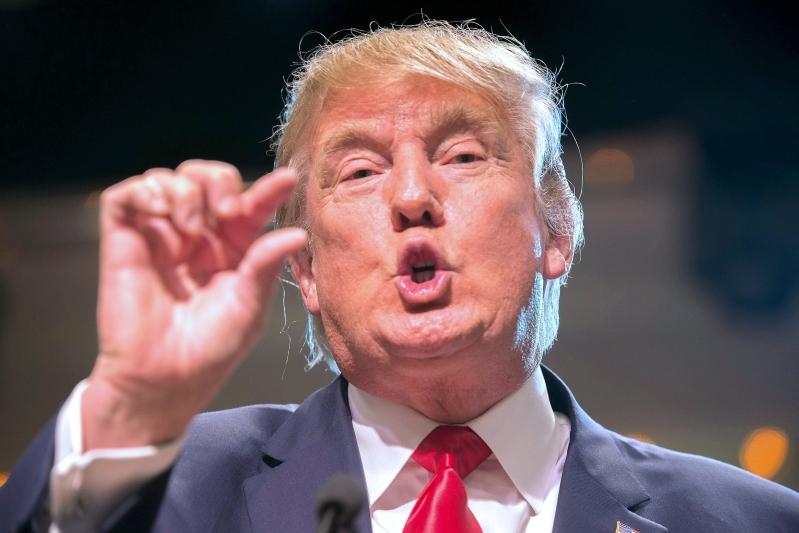
Donald Trump is the Republican candidate most trusted to manage the economy, deal with foreign leaders and serve as commander in chief, according to a new Reuters/Ipsos poll of Republicans conducted after the party's third debate.
And more Republicans would trust him with the nation's nuclear weapons than most of the rest of their party's presidential primary field.
In terms of overall support, Trump was favored by 31 percent of Republicans polled by Reuters/Ipsos in an online survey conducted Oct. 28 to Nov. 2 that had a credibility interval of plus or minus 4.4 percentage points. Retired neurosurgeon Ben Carson placed second with 18 percent. Senator Marco Rubio of Florida and former Governor Jeb Bush tied for third place with 10 percent each.
For anyone still confused about why Trump is holding strong onto a double-digit lead in most presidential primary polls, look no farther than at how much Republican voters trust him. The growing trust shows Trump's campaign message - that his experience in business means voters should pick him to negotiate trade deals or take on Russia's Vladimir Putin - is resonating.
On the question of whether voters trust the candidates to manage the economy, 59 percent said "yes" to Trump.
None of the other Republican candidates came even close. Carson was second, with 36 percent saying they trust him to manage the economy. Rubio was third with 27 percent, followed by retired business executive Carly Fiorina at 25 percent.
It's not just on the economy where Trump shines. Asked whether they trusted the various Republican candidates to be commander in chief, Trump and Carson were tied, at 40 percent each.
On the question of whom they trusted to deal with foreign leaders, Trump again took top marks, with 41 percent saying they would trust the New York real estate mogul. Carson was a close second at 39 percent. Rubio, who has made foreign policy a central part of his campaign and stressed his experience on the Senate Foreign Relations Committee, was third at 31 percent.
Asked about handling the nation's nuclear weapons - another insight into voters' views on foreign policy - 34 percent of Republicans said they would trust Trump. He trailed only Carson, with 39 percent saying they would trust Carson to have his finger on the proverbial button. Only 27 percent said they would trust Rubio.
When it comes to the Oct. 28 debate, of those Republicans polled, a plurality, or 22 percent, thought Trump won.
The poll appeared to show Trump and Carson garnering the most benefit from the debates.
Of the Republicans polled, 31 percent said the debate changed their opinion about Carson and made it more positive. The same was said by 29 percent about Trump, but 22 percent said they had a more negative attitude of him afterward.
The debate may have done the most damage to Bush. Twenty-nine percent said after the debate they had a more negative view of Bush.






